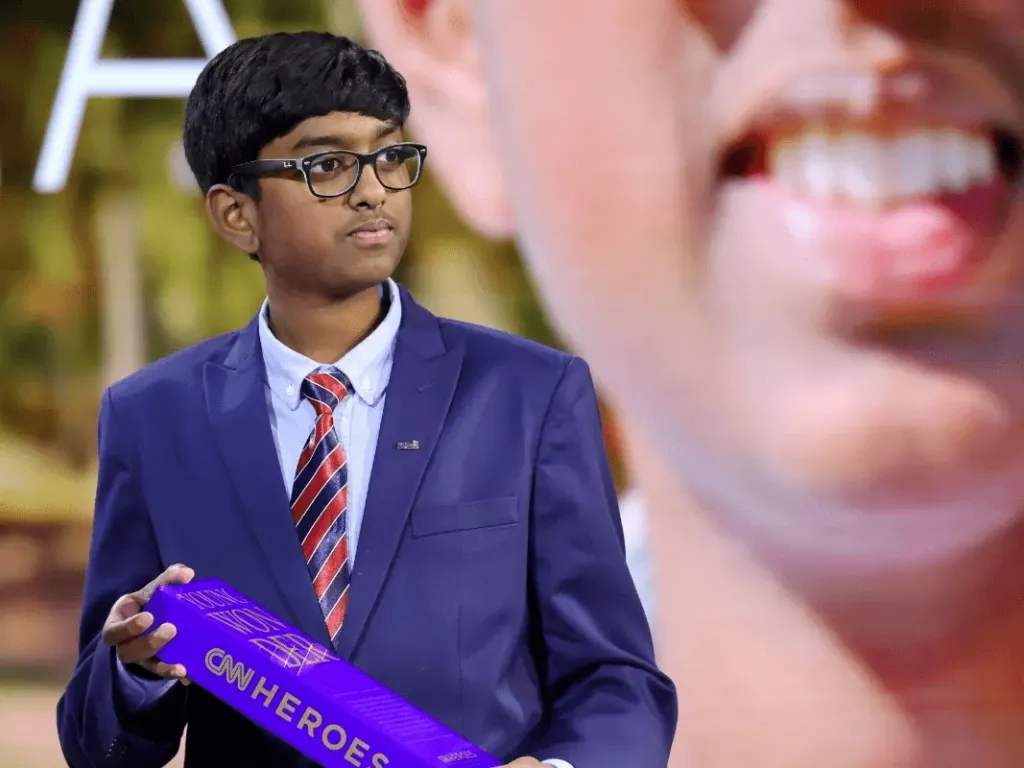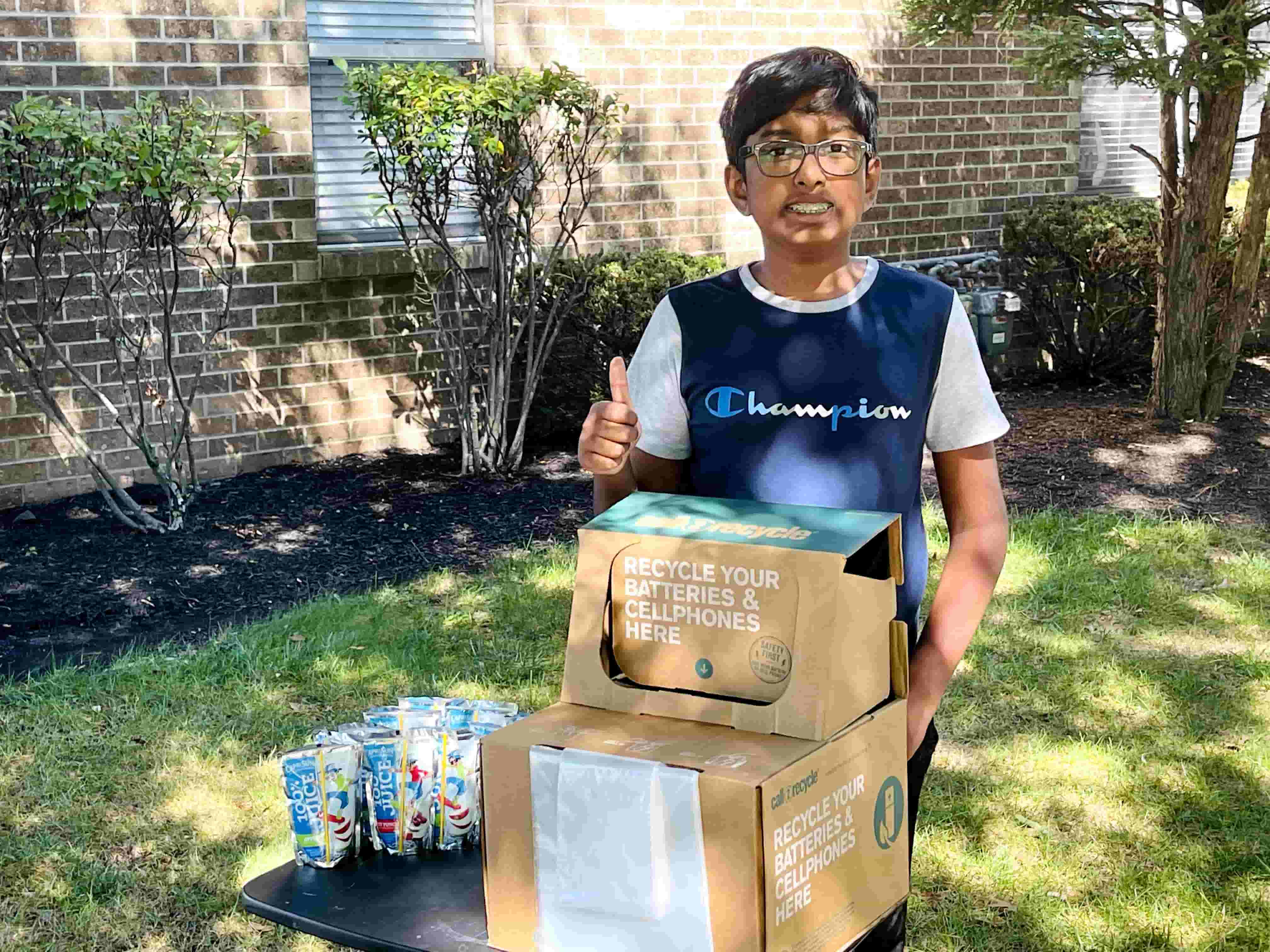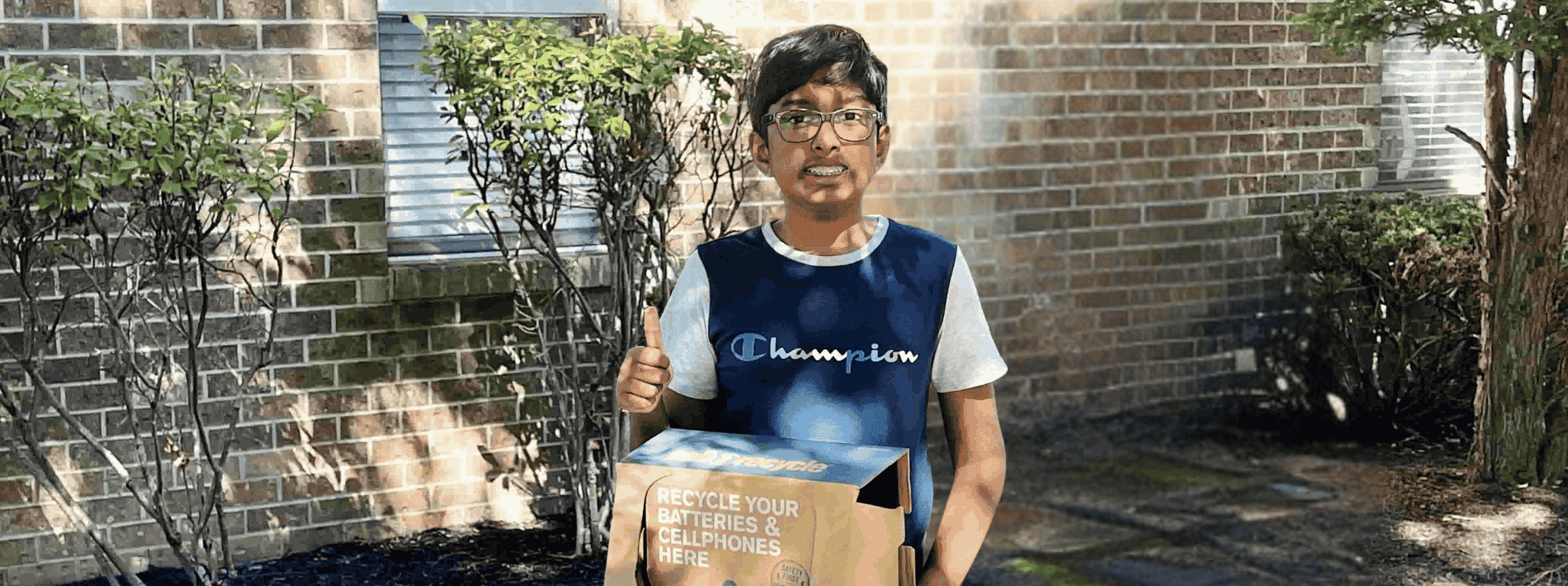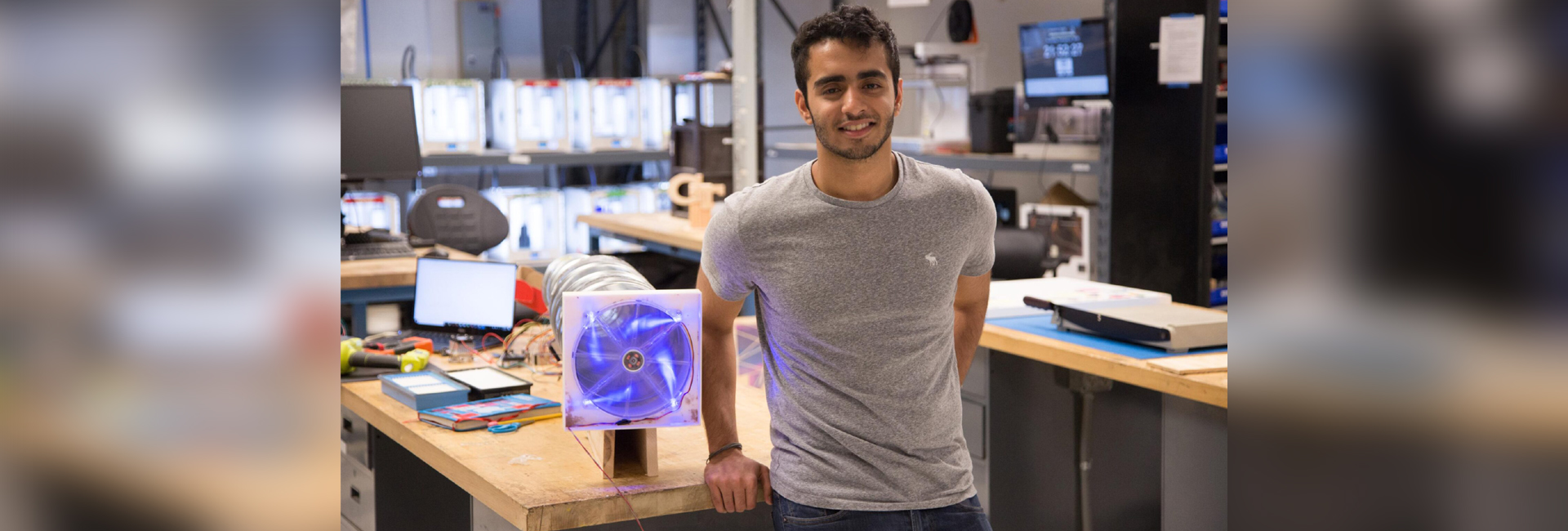(September 17, 2024) When Sri Nihal Tammana, founder of Recycle My Battery, turned 10, his father sat him down and told him about the world in which they lived. “It was my birthday and my dad said I had to be more concerned about what was going on around the world,” says the US-based Nihal who is now 13 and has been running his non-profit, Recycle my Battery for three years. The Edison teen is the winner of the prestigious CNN Heroes Young Wonder Award, for his work in making sure that batteries don’t end up in landfills or in the water supply.
After that fateful conversation with his father on his tenth birthday, Nihal began watching the news. One day, he learned that a waste disposal plant had caught fire. He found that the cause was a lithium-ion battery that had been thrown into the trash, where it exploded. “I remember watching the chaos and it was super scary,” he said.
Nihal thought of his favourite toy – his drone, which also runs on batteries. “I asked my dad if anyone could do something about the problem and he said yes but they aren’t trying to fix the problem. I couldn’t stop thinking about it.” As he watched the news every day, he saw more stories on the news that were similar.
As he did his own digging, Nihal learned that billions of batteries are thrown away every year, at great cost to the environment and to humanity. Batteries work by converting chemical energy into electrical energy and as it happens, the chemicals required for the process – lead, lithium, mercury and cadmium all constitute hazardous waste. Some 15 billion batteries are thrown away annually across the world and, according to Nihal, only one percent of people know that lithium-ion batteries shouldn’t be thrown away in the trash.

Importance of Battery Recycling
“Batteries power nearly all our devices and we are going to be using them more and more,” Nihal explained. “I realised that the problem wasn’t with batteries themselves but with what we do with them after they run out of juice.” The answer, he knew, wasn’t in banning them altogether but simply in disposing of them correctly. “I’m a realist,” he remarks. “I can’t imagine not using my battery-powered devices, not even for a day. The battery isn’t going away and it won’t help us to stop using them either. The answer is recycling.”
For over a year, Nihal studied the impact of batteries on the planet. Then, he looked at solutions for the disposal process. He went door-to-door, talking to everyone who would listen about the issue. He also visited local businesses to make sure they were recycling properly. His cousin soon joined him and in 2019, they founded their own non-profit, Recycle My Batter. “We talked to everyone at school and around the neighbourhood. Many people decided to come and help out. Changing the way people think and act as a community is the most important thing we can do today.”
School children in New Jersey rallied to his cause. Recycle My Battery then began setting up battery bins in offices, schools, public libraries and other locations, also working with Call2Recycle, the largest organisation of its kind in the US and Canada. A little over three years after it was founded, Recycle My Battery now functions with a team of 300 school kids, who spread awareness and install free-to-use battery bins in schools and other public locations. The organisation has collected over 225,000 used batteries, successfully keeping them out of landfills and ensuring that they recycled. “People have been very supportive,” he remarks, adding that his efforts at school have earned him a new nickname – Battery Boy.


Nihal is also an active proponent of spreading awareness, which he does through conferences, webinars, email campaigns and going door-to-door. These efforts have helped them reach out to millions of people around the world. In 2020, over 20 school superintendents signed up for the installation of the battery bins on their premises. “That’s more than 200 schools and over 200,000 students,” Nihal says.
In December 2022, as Nihal received the CNN Heroes Young Wonder award, attending the ceremony at the American Museum of Natural History in New York City. “The earth has done so much for us,” Nihal said. “We should do something back. I hope that other people have an epiphany too and make a change, even if it’s a small one.”




